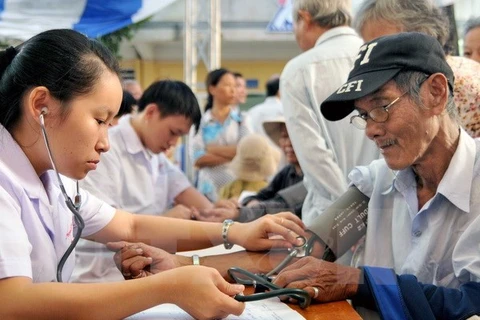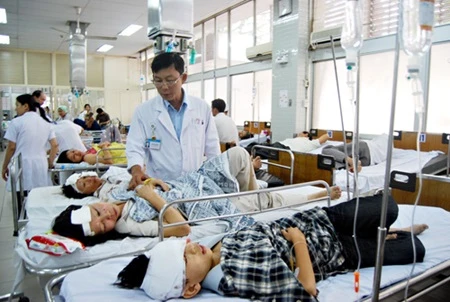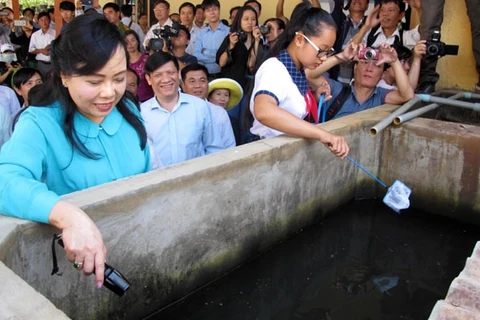Hanoi (VNA) – The civil-military health centres have significantly helped improve health service at border areas and islands and should be maintained in the coming time, Deputy Prime Minister Vu Duc Dam has said.
He made the statement at the fifth teleconference reviewing the national civil-military medical programme in 2005-2015, held by the Ministry of Health (MoH) in collaboration with the Ministry of Defence (MoD), in Hanoi on May 10.
The Deputy PM affirmed the important role of the programme in nursing the residents, officials and soldiers in strategic areas in terms of defence-security, especially remote, border, island and economically underdeveloped areas.
He also noted the need to make adjustments to the programme to suit the new situation, asking the MoH and MoD to closely work and draw up plans to further reinforce the grassroots health service in border areas and on islands.
Besides investing in facilities, Dam said special attention should be given to improving the quality of human resources, increasing the application of new technologies, and boosting diagnosis and treatment capability with modern equipment.
He said the civil-military coordination should also focus on search and rescue efforts as well as responses in emergencies.
Deputy Minister of Health Pham Le Tuan reported the Border Guard Command and localities have over the decade developed 152 civil-military examination rooms at border guard stations positioned along the border.
Besides medical check-ups, border guard medical personnel have also taken part in national health programmes like the expanded vaccination programme, the fight against malaria, tuberculosis, and child malnutrition, and reproductive health.
They have also guided locals to lead a sanitary life, organised community-based rehabilitation for drug addicts in border districts in the provinces of Dien Bien, Son La and Thanh Hoa, and conducted communications campaigns against HIV/AIDS, on population and family planning.
At sea borders, on small islands and island communes, border guard medical officers have frequently been visited by fishermen.
In the reviewed period, the programme invested over 420 billion VND in improving the operation of 529 commune-level health centres.
The military medical corps and civil-military medical centres across the country have carried out 40.6 million medical check-ups, and provided emergency aid to 6.2 million people and treatments to 20.5 million others.
Civil-military health centres in border areas have also offered examinations to people hailing from neighbouring countries, such as the one posted at the Cau Treo border gate in Ha Tinh province, the Ba Thu health centre in Long An province.
Meanwhile, civil-military health centres on islands helped with 6,641 cases requiring emergency aid.
The MoD mobilised 62 helicopters to transport the injured or ill people at sea or on islands back to the mainland for treatment, including 22 soldiers and 40 residents.-VNA
























